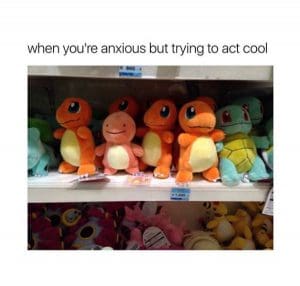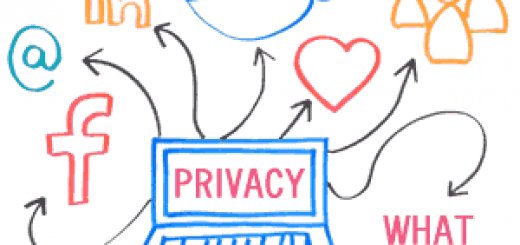Discussing Mental Health Through… Memes?
 Memes are an undeniable staple of Internet culture. If you browse around many websites and social media platforms, you will almost certainly come across image macros, Tumblr posts, viral tweets, and other content that has been circulating the web.
Memes are an undeniable staple of Internet culture. If you browse around many websites and social media platforms, you will almost certainly come across image macros, Tumblr posts, viral tweets, and other content that has been circulating the web.
The majority of modern memes are captioned photos that are intended to be funny, “often as a way to publicly ridicule human behavior.”
Memes have become a method of describing different experiences and aspects of our lives in a humorous way—including mental health. In fact, mental health is one of the most common meme subjects that I’ve seen on the Internet.
On the surface, making jokes regarding mental health may sound distasteful. But when someone with a mental illness creates a meme about their condition, it may add a little laughter to their own day or even help others to understand what goes on in their mind.
Like many other teens and young adults, I shamelessly enjoy and share some of the memes that appear on my social media feeds. The whole phenomenon of memes is really intriguing to me—it’s fascinating that so many people will laugh at or relate to a quotation or picture and then add their own content to keep the humor going.
I see memes as a creative, low-pressure way of expressing our perspectives. Yes, some memes are made solely for levity, but others can convey deeper trains of thought. Memes allow us to share observations, feelings, and social commentary in a way that others are more likely to understand and find interesting
So, how is mental health discussed through memes? I think memes are a sort of coping mechanism that allows one to laugh at oneself. They make me smile and think, “Haha, I can totally see myself in that picture!” And apparently many other people do as well, considering the prevalence of posts like these.
 Of course, it’s fair to say that mental-illness memes trivialize serious conditions, and some people may find them oversimplifying or offensive. But nearly all of the memes I’ve come across are pretty relatable, and effective humor often has a considerable degree of truth. Describing my struggles in humorous terms is a way to laugh a little.
Of course, it’s fair to say that mental-illness memes trivialize serious conditions, and some people may find them oversimplifying or offensive. But nearly all of the memes I’ve come across are pretty relatable, and effective humor often has a considerable degree of truth. Describing my struggles in humorous terms is a way to laugh a little.
Additionally, since memes are a sort of language of their own, they can be a useful way to tell others how your illness affects you. It can be difficult or uncomfortable to tell others how you feel, but a meme might be able to illustrate a feeling or experience in a way that others can understand. This can even be the first step to having more open conversations about your mental health—it can help you ease into a difficult topic.
 A final word of advice: as with all Internet content, it’s easy to fall into the bottomless pit of mindlessly surfing the web for hours and hours, which is not conducive to good mental health. Self-care is essential for all Internet activities, which includes spending time away from the screen and taking a break if you come across something that makes you uncomfortable or upset. And while memes can bring a laugh every now and then, it’s important to remember that you are not defined by the attitudes expressed in them, just as you are not defined by your illness. Memes aren’t a well-rounded way of describing a mental illness. Real life is more complex than a few words copied onto a picture, and it’s important to be honest with yourself and others about how you’re feeling, rather than trying to project the entirety of your illness into a simple several-word meme.
A final word of advice: as with all Internet content, it’s easy to fall into the bottomless pit of mindlessly surfing the web for hours and hours, which is not conducive to good mental health. Self-care is essential for all Internet activities, which includes spending time away from the screen and taking a break if you come across something that makes you uncomfortable or upset. And while memes can bring a laugh every now and then, it’s important to remember that you are not defined by the attitudes expressed in them, just as you are not defined by your illness. Memes aren’t a well-rounded way of describing a mental illness. Real life is more complex than a few words copied onto a picture, and it’s important to be honest with yourself and others about how you’re feeling, rather than trying to project the entirety of your illness into a simple several-word meme.
What is your experience with memes? Do you think they’re helpful and relieve tension, or do you think they shame people with mental illness—or both? Let us know in the comments!




Recent Comments